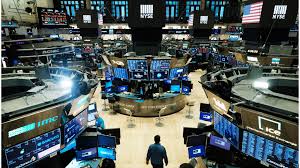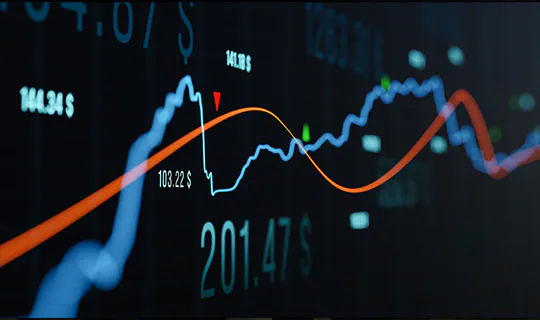Global stock markets remained largely stable as top US and Russian officials held their first high-level talks since Moscow invaded Ukraine. The discussions, which did not involve Europe or Ukraine, concluded with both nations agreeing to form negotiation teams to explore a resolution to the conflict.
“Donald Trump continues to be the dominant force for financial markets,” said Kathleen Brooks, research director at XTB.
“Trump has ripped up the playbook when it comes to dealing with Russia, and the markets are keeping the faith with the US President for now,” she added.
On Wall Street, the Dow Jones Industrial Average ended flat, while the S&P 500 eked out a fresh record after a late-session rally.
European markets were also steady, with Frankfurt’s DAX index hitting a record high as investors hoped upcoming elections would lead to a more effective ruling coalition.

“There seems to be a widespread belief that a global recession will not occur and that the trade war is merely a ‘residual risk’,” said CMC Markets analyst Konstantin Oldenburger, adding that cash reserves among funds and asset managers have dropped to their lowest levels since 2010.
Defence stocks continued their upward trajectory after surging the previous day amid renewed European commitments to Ukraine. Danish Prime Minister Mette Frederiksen announced plans to unveil a “massive” military rearmament on Wednesday in response to the perceived growing threat from Russia.
In corporate news, Intel soared 16.1 percent following a Wall Street Journal report that Broadcom and Taiwan Semiconductor Manufacturing Co. were considering acquiring key assets from the chipmaker.
Nike also saw gains, climbing 6.2 percent after revealing a joint venture with Kim Kardashian under the NikeSKIMS brand.
However, US homebuilder stocks declined after a survey indicated a sharp drop in industry sentiment, driven by concerns over tariffs.
Meanwhile, in Asia, Hong Kong’s stock market rebounded, fueled by a recovery in Chinese tech stocks. The rally followed a meeting between President Xi Jinping and top Chinese business leaders, raising hopes that Beijing’s regulatory crackdown on the private sector may be easing.


